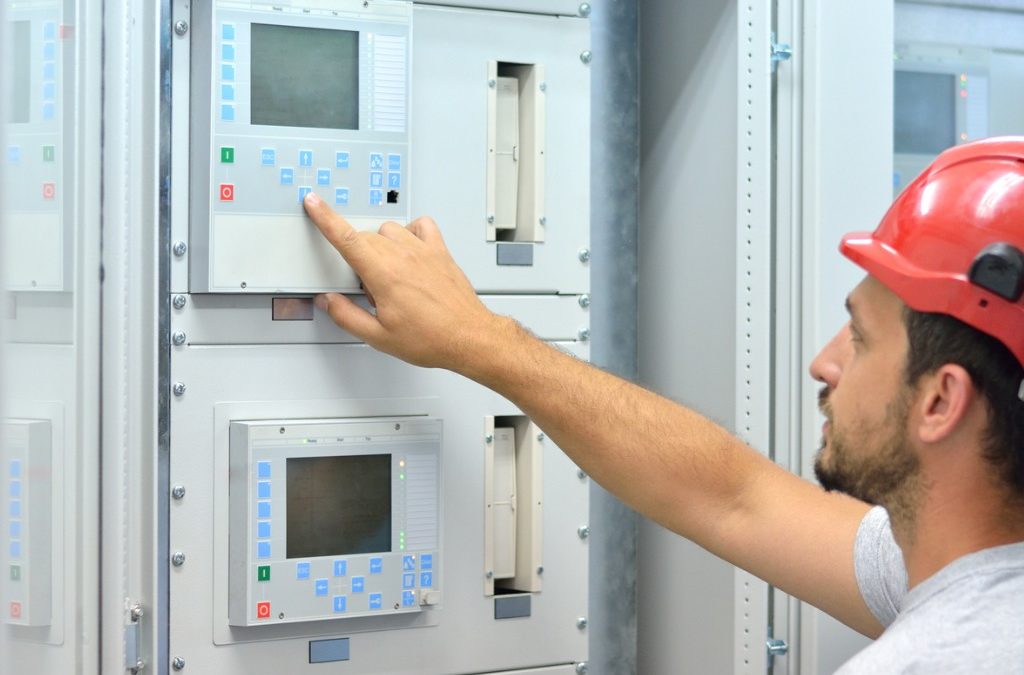Do you need to find a surefire way to save your business some money? If so, then you’re in the right place. Building automation systems are revolutionizing the way businesses and building owners run their operations and keep their buildings in perfect working order.
What Is a Building Automation System?
A building automation system (BAS) is a system that automatically controls and monitors the key components of your building. For example, a BAS might control your HVAC system, lighting, security systems, energy management, and more.
Buildings that utilize a BAS are, therefore, referred to as smart buildings, capitalizing on the ever-popular trend of referring to objects that perform multiple functions as “smart.”
One of the main objectives of a BAS is to compile all of the information that is relevant to a building’s performance and make it easily accessible to building owners.
Needless to say, a BAS should be able to automate, control, and moderate everything by itself, but in the event that the building owner or manager needs to make a change, a BAS control system will allow that person to make the necessary adjustments without hassle.
These changes could include turning the temperature or humidity up or down, turning on specific lights, or allowing a specific person to access a specific area of the building.
A BAS is designed to eliminate the need for a building manager to do, well, anything. That would be an ideal world, wouldn’t it? In the event that the manager does need to perform an action, a simplified user interface and building control system (BCS) would allow them to do so easily.
So How Does a Building Automation System Save People Money?
A BAS can save you and your business money in several ways.
- A BAS can increase uptime
- A BAS can increase your energy efficiency and energy savings
- A BAS can make your operations more efficient
Increases Uptime
Uptime is whenever your business operations are up and running as they should. Downtime is whenever your business operations are not running. So… uptime equals good, and downtime equals bad, right? Well, sure, you could think about it like that.

There are two types of downtime.
- Planned downtime
- Unplanned downtime
Say you, your employees, and your business run from 8 AM to 6 PM on Mondays through Fridays. Evenings and weekends would, therefore, be considered planned downtime. Your operations might not be running, but you probably aren’t losing sleep over it.
However, say there is a system crash during working hours… one of your databases can’t be accessed, the power goes out, whatever. Now, this is unplanned downtime. It is downtime that you didn’t account for, and you are likely losing money because of it.
A great BAS can increase your business’s uptime. It will help to eliminate any downtime that might occur as a result of building performance.
Now, a BAS isn’t going to prevent downtime that is caused by data breaches or system crashes, but it can prevent downtime that is caused by power outages or a malfunctioning HVAC system.
Not only is everything, for the most part, automated, meaning there is less room for human error, but BASs also constantly monitor and control system performance. A BAS can identify potential problems before they occur and report them to you.
In the past, your power might go out, your boiler might shut down, or your Wi-Fi might stop working, and you would have to pause operations to have a mechanic or electrician come out and fix your problem.
An effective BAS can help prevent these issues by monitoring the system and reporting weaknesses and potential issues. That way, you can address these minor issues before they become big problems.
Increases Energy Efficiency

As we mentioned earlier, a BAS-controlled building is less susceptible to human error. There is less of a risk of people forgetting to turn the lights off or adjust the temperature before they leave.
A BAS will take care of all of this for you, and of course, digital controls allow you to program the settings of your BAS to be exactly how you want them to be.
If you would like to be more frugal with your energy bills, then you can do that. You can set the lights to go off at very specific times, program your HVAC system to not exceed certain temperatures, demand limiting, and adjust other settings to increase your energy efficiency.
Makes Your Operations More Efficient
As you can see, efficiency is the name of the game when it comes to BASs. To put it simply, BASs streamline your building operations, therefore increasing efficiency and saving you money.
For example, if you run a business where building occupants and visitors come and go on a regular basis, your access control systems can be managed by your BAS, as opposed to a security team.
Fewer people to pay means more money for you. If you own your building, a BAS can simplify the building’s functions to the point where you don’t need to hire a building manager to manage all of those functions.
A BAS can allow you, the owner, to manage all of those functions yourself, and it won’t even require that much more effort from you in the long run.
The more responsibilities that you can handle yourself, without them bleeding over into the more important things that you need to do, the fewer people you need to hire to handle them.
How Can You Get Your Hands on a Building Automation System?
By now, your building being run by a BAS sounds pretty sweet, doesn’t it? So, what’s the easiest way to get one?
Look no further than Design Mechanical. Our extensive knowledge of HVAC systems and building functions allows us to provide you with top-of-the-line digital systems that streamline your building’s operations. Oh, and save you money, of course!
Not all BASs can handle more than one function. For example, some are designed specifically to control HVAC systems, while others specialize in controlling lighting. Not ours. Our BASs can monitor and control everything from heating and cooling to lighting and even security!

